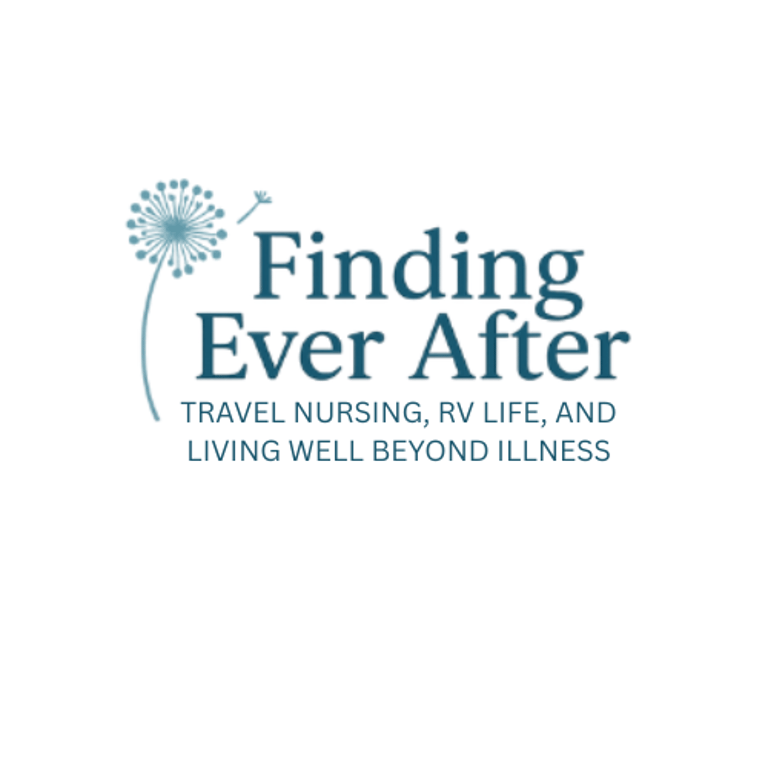Chronic Illness and Loneliness: How to Break Social Isolation
Chronic Illness and loneliness can sometimes go hand in hand. Discover real ways to break social isolation, nurture friendships, and rebuild meaningful connections.
EMOTIONAL & SOCIAL REALITIES
Velvet Larrabee
8/24/20255 min read


Living with a chronic illness changes far more than your body—it reshapes your relationships, your routines, and sometimes, the way you see yourself. One of the hardest realities many of us face is loneliness. It’s not just the isolation that comes from being physically unwell, but also the heartache of canceled plans, missed moments, and the slow fade of friendships that don’t always know how to stretch around your new reality.
If you’re reading this, you might be freshly diagnosed or in those early years of adjustment, looking at a future that feels uncertain and, at times, painfully lonely. I want you to know—you’re not imagining it. Social isolation is a very real part of chronic illness, and it hurts. But you are not broken, and you are not destined to be alone forever.
This post is about acknowledging the emotional truth of loneliness while also offering practical, compassionate steps to help you build connection, even when your energy is limited and your body feels unpredictable.
The Silent Weight of Social Isolation
One of the hardest parts of chronic illness is how invisible it can be to others. Friends may not understand why you cancel plans at the last minute, why you don’t “just push through,” or why you can’t commit to things the way you used to. Over time, you may notice fewer invites, fewer texts, and a creeping sense of being forgotten.
This isn’t about you being unworthy of friendship—it’s about the way society isn’t built with chronic illness in mind. Our culture prizes availability, energy, and spontaneity. When your body doesn’t allow those things, you may feel like you’ve been quietly excluded from the social script.
And then comes the loneliness. The kind where you scroll through social media and see everyone else “living their best lives” while you’re stuck in bed. The kind where you long for company but don’t have the energy to reach out. The kind where even when you’re surrounded by people, you feel misunderstood.
Loneliness is heavy. But naming it—and admitting you’re struggling with it—is the first step toward softening its grip.
Why Cancelled Plans Hurt So Much
Every chronic illness warrior knows this cycle:
You make plans with excitement and hope.
The day comes—and your body says no.
You cancel, feeling guilty, embarrassed, or like a “bad friend.”
Over time, you start making fewer plans to avoid disappointment.
What’s left is a shrinking social world. Canceling plans isn’t just about missing a coffee date—it’s about losing the sense of normalcy, of belonging, of being part of life outside your illness.
It hurts because you want so badly to show up. And it hurts because sometimes others take it personally, not realizing your absence isn’t about them—it’s about your body.
Breaking Isolation: Gentle, Realistic Strategies
While loneliness can’t be “fixed” overnight, there are ways to begin building connection again, in ways that work for your reality. Here are some compassionate, practical tools:
1. Redefine What Connection Looks Like
Connection doesn’t always have to mean meeting in person. It can look like:
Sending voice notes instead of long texts.
Watching a movie “together” while texting from bed.
Mailing handwritten notes or cards.
Scheduling short video calls instead of all-day hangouts.
These smaller gestures keep relationships alive without demanding energy you don’t have.
2. Find Your “Chronic Illness People”
There’s something healing about connecting with others who just get it. Online support groups, chronic illness podcasts, and social media communities can help you feel less alone.
Try searching hashtags like:
#ChronicIllnessCommunity
#SpoonieSupport
#DisabledAndProud
These spaces aren’t about wallowing in self-pity—they’re about being seen and understood.
3. Be Honest With Friends About Your Limits
It’s tempting to cancel with a vague “sorry, can’t make it,” but honesty helps protect friendships. Saying, “I really want to see you, but I need a low-energy option like a short coffee date at my place,” opens the door for compromise.
The right friends will adjust. The wrong ones may not—and as painful as that is, it clears space for more supportive relationships.
4. Build Micro-Moments of Social Joy
You don’t need a full night out to feel connected. Sometimes, five minutes of genuine connection can lift loneliness. Ideas include:
Texting one person a photo of something that made you smile today.
Calling a loved one just to say goodnight.
Inviting a neighbor for a 10-minute chat on the porch.
Small doesn’t mean insignificant—these moments add up.
5. Create Rituals That Anchor You
When your body feels unpredictable, rituals can create stability. Consider:
A weekly check-in text with a close friend.
A standing video call every Sunday with family.
A “pen pal” style email exchange with another chronic illness warrior.
Consistency can help fight the unpredictability of canceled plans.
6. Balance Solitude and Isolation
There’s a difference between solitude (peaceful alone time) and isolation (lonely disconnection). Learning to enjoy solitude can soften loneliness. Try:
Listening to audiobooks with cozy lighting.
Practicing gentle mindfulness or guided meditation.
Starting a small creative project, like journaling or sketching.
These aren’t replacements for connection—but they can fill the quiet with meaning rather than emptiness.
7. Consider Therapy or Support Groups
Loneliness isn’t just “in your head”—it impacts mental health. Talking with a therapist, counselor, or chronic illness support group can give you tools to manage the emotional weight of isolation.
Therapists can also help you practice scripts for communicating your needs to friends and family.
The Grief of Friendships That Fade
One of the most painful parts of chronic illness is grieving relationships that don’t survive the transition. Some people will drift away. Some will stop inviting you. Some may even make hurtful comments about your “flakiness.”
It’s not fair. It’s not your fault. And it’s okay to grieve.
But it’s also worth noticing the friendships that deepen—the ones where friends show up with soup, where they’re happy to just sit beside you, where they adjust expectations without resentment. Those are the relationships to nurture.
Chronic illness often reveals which connections are rooted in true care.
Reframing Cancelled Plans
Instead of seeing cancellations as failures, try reframing them as acts of self-preservation.
You didn’t cancel because you don’t care—you canceled because your body needed rest. That’s not weakness. That’s resilience. Protecting your energy is what allows you to keep showing up in life, even if it’s in smaller ways.
Over time, the people who matter will see that. And you’ll see it too.
Hope: Building a Social Life That Fits You
It’s true—your social life won’t look the same as before. But different doesn’t mean joyless.
You may not be able to dance until 2 a.m., but you might host cozy coffee meet-ups.
You may not make every road trip, but you might become the friend who’s always up for a meaningful late-night phone chat.
You may not say yes to everything, but when you do say yes, it will be intentional and treasured.
Life with chronic illness can still hold laughter, companionship, and love—it just asks us to find them differently.
Final Thoughts: You Are Not Alone in Your Loneliness
If you’re feeling lonely right now, please hear this: You are not failing at friendship. You are not unlovable. You are not destined for a life of isolation.
Loneliness is a heavy part of chronic illness, but it doesn’t have to define your entire journey. With compassion for yourself, honesty with others, and a willingness to create new ways of connecting, you can build a social life that honors your body and nourishes your spirit.
It won’t be perfect. It won’t always be easy. But it will be real. And real connection—even in tiny, imperfect doses—is worth everything.
If you're still trying to figure out how to balance daily life with your diagnosis, you might find comfort in the big-picture guide: Living With Chronic Illness: A Complete Guide to Thriving Beyond Your Diagnosis
